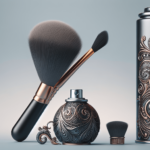Everyone wants healthy, glowing skin, but with the endless options available in the world of skincare, it can be overwhelming to know where to start. Luckily, there are natural ways to boost your skin’s health without breaking the bank. From incorporating nutrient-rich foods into your diet to practicing a consistent skincare routine, this article will explore simple and effective methods to achieve the radiant complexion you’ve always dreamed of. With a focus on gentle, natural solutions, you’ll be well on your way to achieving the healthy skin you deserve. Maintaining a healthy lifestyle is not only essential for your overall well-being, but it can also greatly impact the health of your skin. By incorporating a few simple habits into your daily routine, you can boost your skin’s health naturally and achieve a radiant complexion. Let’s delve into some effective ways to enhance your diet, skincare routine, sleep patterns, stress management, exercise regimen, sun protection, and overall hygiene.
Diet and Hydration
The saying “you are what you eat” couldn’t be more accurate when it comes to your skin’s health. By eating a balanced diet, you provide your body with the essential nutrients it needs to maintain healthy skin. Focus on incorporating a variety of fruits, vegetables, whole grains, lean proteins, and healthy fats into your meals.
One crucial element in maintaining your skin’s health is staying hydrated. Water plays a vital role in flushing out toxins from your body and keeping your skin plump and hydrated. Aim to drink at least eight glasses of water per day and limit sugary and caffeinated beverages that can dehydrate your skin.
Additionally, increasing your intake of fruits and vegetables can have significant benefits for your skin. These nutrient-rich foods are packed with antioxidants, vitamins, and minerals that help combat free radicals and promote a youthful complexion. Particularly, fruits and vegetables that are high in vitamin C, such as oranges, berries, and leafy greens, can help boost collagen production and improve skin elasticity.
Lastly, don’t shy away from healthy fats. Incorporating foods like avocados, nuts, and olive oil into your diet can provide essential fatty acids that nourish your skin from within, keeping it supple and hydrated.
Skincare Routine
Establishing a consistent skincare routine is key to maintaining the health and appearance of your skin. By following a few simple steps, you can effectively cleanse, moisturize, and protect your skin.
Start by cleansing your skin daily to remove dirt, oil, and impurities that can clog your pores. Choose a gentle cleanser that is suitable for your skin type and massage it into your skin using circular motions. Rinse thoroughly with lukewarm water to ensure all traces of cleanser are removed.
Regular exfoliation is essential to remove dead skin cells and promote cell turnover. This can be done with a gentle exfoliating scrub or by using a chemical exfoliant containing ingredients like alpha-hydroxy acids (AHAs) or beta-hydroxy acids (BHAs). However, avoid over-exfoliating as it can damage your skin’s natural barrier.
When it comes to skincare products, opt for natural and gentle options that avoid harsh chemicals and artificial fragrances. Look for products with soothing ingredients like aloe vera, chamomile extract, or tea tree oil. These natural ingredients can help calm inflammation and maintain the skin’s pH balance.
Moisturizing is crucial for all skin types, even if you have oily skin. Choose a lightweight moisturizer that suits your skin’s needs and apply it after cleansing and toning. Moisturizers help lock in hydration and create a protective barrier against environmental stressors.
Perhaps the most important step in any skincare routine is sun protection. Make it a habit to wear sunscreen with at least SPF 30 every day, even on cloudy days. Sunscreen reduces your risk of sunburn, premature aging, and skin cancer. Choose a broad-spectrum sunscreen that protects against both UVA and UVB rays.
Get Enough Sleep
Getting enough quality sleep is vital for your skin’s health and overall well-being. Establishing a consistent bedtime routine can help signal your body that it’s time to wind down and prepare for sleep.
Aim for 7-9 hours of sleep per night to allow your body to repair and rejuvenate. During sleep, your body boosts blood flow to the skin, allowing nutrients and oxygen to reach the cells and promote a healthy glow.
Sleeping on a clean pillowcase is also crucial for maintaining healthy skin. Dirt, oils, and bacteria can accumulate on your pillowcase, leading to breakouts and skin irritation. Change your pillowcase regularly and opt for natural fabrics like cotton or silk, which are less likely to trap allergens and irritate your skin.
Lastly, avoid using electronic devices before bed. The blue light emitted from screens can disrupt your sleep patterns and negatively impact your skin’s health. Instead, unwind by reading a book, practicing relaxation techniques, or taking a warm bath to promote a restful night’s sleep.
Reduce Stress
Stress can take a toll on your skin, leading to breakouts, inflammation, and aging signs. Incorporating stress-management techniques into your daily routine can help alleviate stress and improve your skin’s health.
Regular exercise is an excellent way to reduce stress levels. Physical activity releases endorphins, which are natural mood boosters, and increases blood flow, delivering nutrients and oxygen to the skin. Aim for at least 30 minutes of moderate exercise, such as brisk walking, jogging, or yoga, on most days of the week.
Taking time for relaxation is essential for mental and skin health. Engage in activities that help you unwind, such as reading, practicing mindfulness or meditation, taking a bath, or listening to calming music. These moments of relaxation can reduce stress hormones and promote a sense of inner peace, reflected in your skin’s appearance.
Indulging in a massage or practicing meditation are additional ways to reduce stress levels. Massages not only help relax your muscles but can also improve blood circulation and enhance the skin’s radiance. Meditation, on the other hand, encourages deep relaxation, reduces anxiety, and promotes a clear mind and healthy complexion.
Exercise
Exercise goes beyond maintaining a healthy weight or cardiovascular fitness – it also benefits your skin. Engaging in regular physical activity can increase blood flow, delivering oxygen and nutrients to the skin cells. This enhanced blood flow helps nourish and revitalize your skin, giving it a healthy glow.
Moreover, exercise promotes detoxification through sweat. When you exercise, your body eliminates toxins and impurities through sweat, helping to purify your skin from within. Be sure to cleanse your skin after a workout to remove any sweat and bacteria that may have accumulated.
Regular exercise also helps improve the appearance and elasticity of your skin. By toning your muscles, exercise can lift and firm the skin, reducing the appearance of sagging and wrinkles. It can also help reduce acne breakouts by regulating hormone levels and promoting a healthier complexion.
So, don’t just hit the gym for the physical gains – your skin will thank you too!
Limit Sun Exposure
While some sun exposure is essential for our bodies to produce vitamin D, it’s crucial to limit prolonged exposure and protect your skin from harmful UV radiation.
Avoid prolonged sun exposure, especially during peak sun hours from 10 am to 4 pm. The sun’s rays are strongest during these times and can cause sunburn, premature aging, and even increase your risk of skin cancer.
Wearing protective clothing, such as long sleeves, wide-brimmed hats, and sunglasses, is vital in shielding your skin from the sun’s harmful rays. Opt for lightweight, breathable fabrics with a tight weave to provide the best sun protection.
Seeking shade whenever possible is another effective way to limit sun exposure. If you’re spending time outdoors, look for shaded areas, such as under trees or umbrellas, to reduce direct sun exposure.
Lastly, don’t forget to protect your eyes from the sun’s rays. While we may be diligent about applying sunscreen to our skin, we often neglect our eyes. Opt for sunglasses that offer UVA and UVB protection to shield your eyes and the delicate skin around them from sun damage.
Avoid Smoking and Alcohol
Smoking and excessive alcohol consumption are detrimental to both your overall health and the health of your skin. Quitting smoking can have a profound positive impact on your skin’s appearance and overall health.
Smoking narrows the blood vessels in the outermost layers of your skin, reducing blood flow and oxygen supply to your skin cells. This results in a dull, lackluster complexion and can increase the appearance of wrinkles and fine lines. Quitting smoking can help improve blood circulation and restore a youthful glow to your skin.
Similarly, excessive alcohol consumption can dehydrate your skin and lead to inflammation. Alcohol dilates blood vessels, causing redness and flushing, and can contribute to the breakdown of collagen and elastin, resulting in premature aging signs. Reducing your alcohol consumption can help restore your skin’s hydration and promote a more vibrant complexion.
Natural Remedies
Incorporating natural remedies into your skincare routine can provide additional benefits and support your skin’s health.
Aloe vera gel is a popular natural remedy known for its soothing and hydrating properties. Apply a thin layer of aloe vera gel to your skin to reduce inflammation, soothe irritation, and provide a boost of moisture.
Coconut oil is a versatile natural moisturizer that can be used on both the face and body. Rich in fatty acids, coconut oil helps nourish and hydrate the skin, leaving it soft and supple. Apply a small amount of coconut oil to your skin and let it absorb for a natural, hydrating glow.
Green tea extract is a powerful antioxidant that can benefit your skin when applied topically. Its anti-inflammatory properties help reduce redness and irritation, while its high concentration of antioxidants fights free radicals, promoting a more radiant complexion. Look for skincare products containing green tea extract or apply a cooled green tea bag directly to your skin for a soothing and rejuvenating effect.
Honey is a gentle exfoliant that can help remove dead skin cells and promote a brighter complexion. Apply a small amount of honey to your skin and gently massage in circular motions. Rinse thoroughly with warm water to reveal smoother, more radiant skin.
If you’re experiencing puffiness or inflammation, reach for cucumber slices. Applying chilled cucumber slices to your face can help reduce inflammation and soothe irritated skin. The high water content of cucumbers also provides a hydrating boost.
Stay Hygienic
Maintaining proper hygiene is crucial for maintaining healthy skin and preventing breakouts and infections.
Washing your face twice daily helps remove dirt, excess oil, and bacteria that can clog your pores. Use a gentle cleanser suitable for your skin type and follow up with a moisturizer to maintain hydration.
Avoid touching your face with dirty hands throughout the day, as this can transfer oils, bacteria, and other impurities to your skin, leading to breakouts. Be mindful of this habit and try to refrain from touching your face unless necessary, and always ensure your hands are clean.
Another aspect of hygiene often overlooked is cleaning and disinfecting your makeup brushes regularly. Makeup brushes can harbor bacteria and dirt, leading to breakouts and skin irritation. Clean your brushes once a week using mild soap or a brush cleanser to maintain their cleanliness.
In addition to caring for your face, it’s essential to maintain scalp and hair hygiene as well. Wash your hair regularly to avoid oil buildup that can transfer to your face and clog your pores. Use a gentle shampoo that suits your hair type and follow with a conditioner to keep your hair and scalp healthy.
Avoid Harsh Chemicals
Many skincare products on the market contain harsh chemicals and artificial fragrances that can irritate your skin and disrupt its natural balance. Opting for natural or organic products can help protect your skin and prevent unnecessary irritation.
When selecting skincare products, take the time to read labels and familiarize yourself with the ingredients. Look for products that contain natural, plant-based extracts and oils, as they often provide nourishing benefits to the skin without causing irritation.
Avoid harsh exfoliants and chemical peels, as these can strip your skin of its natural oils and disrupt the moisture barrier. Opt for gentler exfoliation methods like enzyme-based exfoliators or use a soft washcloth to buff away dead skin cells.
Be cautious with chemical-laden makeup products as well. Choose cosmetics that are labeled as non-comedogenic, which means they won’t clog your pores. Look for mineral-based or water-based foundations and avoid heavy, oil-based makeup products.
By making these small adjustments to your lifestyle, you can create a comprehensive routine that supports your skin’s health naturally. Remember, consistency is key. Stick to your newfound habits, be patient, and soon you’ll notice significant improvements in the health and appearance of your skin. So why wait? Start incorporating these natural ways to boost your skin’s health today and enjoy the benefits of a radiant complexion for years to come.




